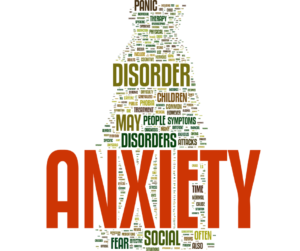Anxiety is a common mental health condition that affects millions of people worldwide. While experiencing occasional anxiety is normal, persistent or excessive anxiety can significantly impact daily functioning and overall well-being. Fortunately, various treatment options are available to help individuals manage and alleviate symptoms of anxiety. In this article, we will explore effective anxiety treatment strategies, with a particular focus on the role of hypnosis in alleviating anxiety symptoms.

Understanding Anxiety Treatment:
Anxiety treatment typically involves a combination of therapeutic approaches, lifestyle modifications, and, in some cases, medication. The goal of treatment is to reduce symptoms, improve coping mechanisms, and enhance overall quality of life for individuals with anxiety disorders.
Effective Anxiety Treatment Strategies:
Cognitive-Behavioral Therapy (CBT): CBT is a widely recognized and evidence-based therapy for treating anxiety disorders. It helps individuals identify and challenge negative thought patterns and beliefs that contribute to anxiety. Through CBT, individuals learn coping skills and strategies to manage anxiety symptoms effectively.
Exposure Therapy: Exposure therapy involves gradually exposing individuals to feared situations or stimuli in a controlled and safe environment. By confronting their fears in a systematic way, individuals can learn to tolerate anxiety and reduce avoidance behaviors.
Relaxation Techniques: Relaxation techniques such as deep breathing, progressive muscle relaxation, and mindfulness meditation can help reduce stress and anxiety. These techniques promote relaxation and calmness, making them valuable tools for managing anxiety symptoms.
Medication: In some cases, medication may be prescribed to alleviate symptoms of anxiety. Common medications used to treat anxiety include selective serotonin reuptake inhibitors (SSRIs), serotonin-norepinephrine reuptake inhibitors (SNRIs), benzodiazepines, and beta-blockers. It’s essential to work closely with a healthcare provider to determine the most appropriate medication and dosage for individual needs.
Lifestyle Modifications: Making lifestyle changes can have a significant impact on anxiety levels. Engaging in regular exercise, maintaining a healthy diet, getting adequate sleep, and avoiding alcohol and substance abuse can help manage anxiety symptoms.
The Role of Hypnosis in Anxiety Treatment:
Hypnosis, also known as hypnotherapy, is a therapeutic technique that involves inducing a trance-like state of heightened relaxation and focus. During hypnosis, individuals are more open to suggestions and can explore and address underlying issues contributing to their anxiety.
Hypnosis can be beneficial for anxiety treatment in several ways:
- Addressing underlying traumas or negative experiences: Hypnosis can help individuals uncover and process past traumas or negative experiences that may be contributing to their anxiety.
- Changing negative thought patterns: Hypnosis can help individuals replace negative thought patterns and beliefs with more positive and adaptive ones, leading to a reduction in anxiety symptoms.
- Promoting relaxation and stress reduction: Hypnosis induces a state of deep relaxation, which can help individuals manage stress and anxiety more effectively.
- Enhancing coping skills: Through hypnosis, individuals can learn and practice coping skills and relaxation techniques to manage anxiety symptoms in their daily lives.
Effective anxiety treatment involves a comprehensive approach that addresses both the symptoms and underlying causes of anxiety. By incorporating therapeutic techniques such as CBT, exposure therapy, relaxation techniques, medication, lifestyle modifications, and hypnosis, individuals can effectively manage and alleviate symptoms of anxiety, leading to improved overall well-being and quality of life.
If you or someone you know is struggling with anxiety, don’t hesitate to seek support from a qualified mental health professional who can help develop a personalized treatment plan tailored to individual needs.
Get a free copy of my program, The Power of Your Unconscious Mind, to better understand where anxiety comes from and how we can get rid of it.
